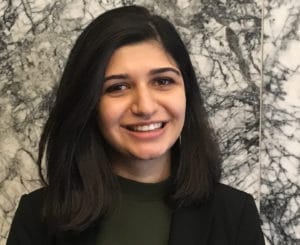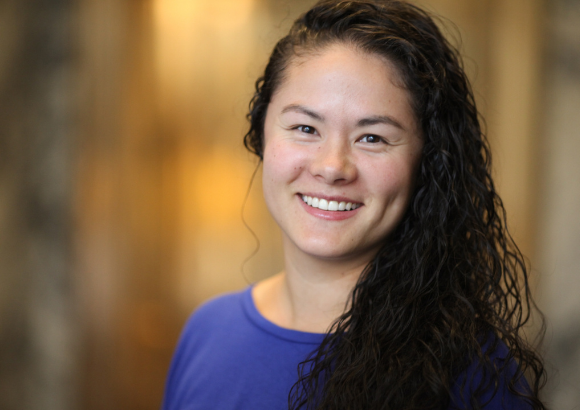
Margaret Babayan just wrapped up her tenure with us as the 2018-19 Betty Jane Narver Policy Fellow. This month, she is graduating from the University of Washington Master of Public Health program, where she focused on community-oriented public health. Margaret’s dedication to protecting human rights and working toward health equity enhanced our work here at the Budget & Policy Center. And we are excited that she will be joining our team as a policy analyst later this summer! Before moving into her new role, Margaret shared some of her thoughts about her time as a Narver Fellow.
What inspired you to apply for the Narver Fellowship ?
My background is in public health. I was growing frustrated by how often public health activities are focused on being reactive rather than proactive – and I was frustrated with how public health professionals often have to fight for limited funding because of our state budget and upside-down tax code. When I heard about this fellowship, I knew I had to apply. The fellowship seemed like the perfect opportunity to learn more about how to leverage the budget to advance policies that undo health inequities.
What are some key things that you learned?
The Narver Fellowship was a boot camp in data, advocacy, and communications, and I learned how vital each of these components is in advancing state policy. The Budget & Policy Center does an incredible job translating complex policy research into accessible messaging to move policy. I got to practice doing just that. Of course, I’m also thankful for all the technical skills I got to practice in this fellowship, like working with large datasets in the statistics program Stata. Shout-out to Jennifer Tran, associate director of social and health policy, for encouraging me to take on those projects and mentoring me along the way.
What were some highlights of your fellowship experience?
I looked forward to coming into the office each day. It was such an honor to work alongside a team of passionate, smart, and genuinely hilarious policy wonks. Building meaningful relationships with this amazing team was a highlight in and of itself.
The Budget & Policy Center also made sure I had the opportunity to engage with partners and stakeholders outside of the office who are working to make Washington more just and equitable. For example, I shadowed Kim Justice, director of the Washington State Office of Homeless Youth (and former Budget & Policy Center team member!) and learned about how her team is working to create systems change to prevent youth homelessness. It’s inspiring to know there is a network of change-makers and leaders throughout the state.
Did anything surprise you during your time with us?
The Budget & Policy Center invested so much into my growth and professional development throughout this fellowship. Even during the legislative session when everyone was working around the clock, I felt that each team member took time to ensure I was learning and practicing new skills. I was also surprised by how inclusive the team was. I felt my opinion was valued as much as any other staff member. You don’t see that everywhere, and I think it’s a testament to the integrity of the Budget & Policy Center.
What do you hope to do in your career?
I love the intersection between research, advocacy, and of course public health and health equity. I will be staying on board at the Budget & Policy Center as a policy analyst after my fellowship tenure ends. I am thrilled for the opportunity to continue doing such important work here early in my career!
